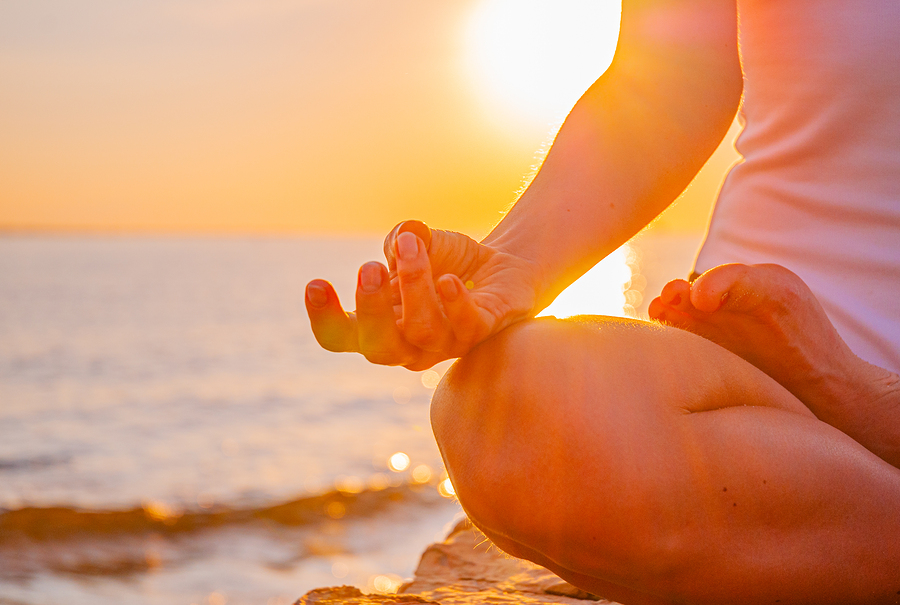
Meditation has long been held to promote well-being and even help end suffering. More recent clinical studies now back that up by suggesting that mindfulness may cure anxiety, depression, and a whole host of other health problems. The goal of meditation is to ultimately bring awareness to every moment of one’s life, not just time one spends formally meditating. Here are some tips that will help bring present-moment awareness to all your daily activities:
Practice daily meditation for at least 20 minutes.
The benefits of meditation can only be enjoyed if it is practiced every day. Twenty minutes a day is a good general guideline. During meditation strive for awareness and focus on your breathing and be mindful of your own thoughts.
Exercise mindfulness even in your eating.
Meditation allows us to be more aware and present in whatever we are doing at the moment. It has a beneficial impact on every aspect of daily life. Because eating is such a big part of our lives, learn to eat mindfully. Pay attention to the food, how it looks, how it tastes, how it smells like. Also, maintain a heightened sense of awareness that you are eating.
Choose food that encourages wellness.
Mindfulness changes more than the way you eat food. It should inform you on what kind of food you should eat as well. Choose food that will truly feed your body such as fresh-picked, locally grown food and produce. Health food will nourish your body and your mind.
Take life one task at a time.
It will be difficult to be fully present in the present moment if you are thinking about too many things and tasks to accomplish. Take life one task at a time. Meditation will help you become more focused, creative, resourceful, efficient, and holistically balanced. This applies whether you’re driving, watching television, working in front of a computer, or doing domestic tasks at home.
Engage in meaningful conversations.
You can achieve present-moment awareness in all of your daily activities. You can even practice this while engaged in conversation. Focus on the people you are talking with, on what they are saying, how they are feeling, and even try to be aware of things that remain unsaid. Meditation will help us develop unconditional love that springs from a deep sense of peace and serenity. This will help strengthen relationships.
Reconnect with nature.
Natural environments have restorative effects. They help restore the body and the mind. Be mindful of your surroundings. Take a walk in a garden or in the woods. Enjoy the beach. Stare at the stars. Stop and smell the flowers. Use your senses of seeing, hearing, smelling, and feeling to open up to the world around you.
Take the time to just breathe.
The first meditation technique that most people will learn is to watch their breath. This is very important as it promotes serenity and focus. Focusing on your breath continues as you develop into a state of heightened awareness. Take the time to stop and breathe deeply frequently throughout the day.
Steady the self and be still.
With so many things going on around us, it is easy to feel like life is spinning out of control. The only way to steady the self is by setting aside time to be still. Seek for moments of silence. You should also learn, however, to practice meditative awareness anytime, anywhere. Use any experience or activity for reflection.
Be grateful.
We have talked about being aware of yourself, of the people around you, and of your surroundings. Being grateful will invite you to be aware of positive life events, experiences, and opportunities. Keep a journal where you can regularly record things that you are grateful for. Being mindful of the past and the future will also help you truly live in the present. Being grateful is also a sure and easy way to feel good.
Develop a sleep routine.
Having a regular sleep routine trains the brain that it’s almost time to hit the bed for some shut-eye. This will really improve the quality of your sleep. And having better sleep means having a better life. Break out your essential oils and experiment with aromatherapy. Log off of your electronics one to two hours before retiring to bed. Yoga and meditation exercises also prep the body and brain for sleep.
Use mindfulness and guided meditation apps.
Your smartphone or tablet are now incredibly effective tools for mindfulness and meditation. Make the most of technological advances that will help you with your well-being. There are now many sleep improvement apps, yoga options, and guided meditations that are easily accessible (and basically free) for everyone.


